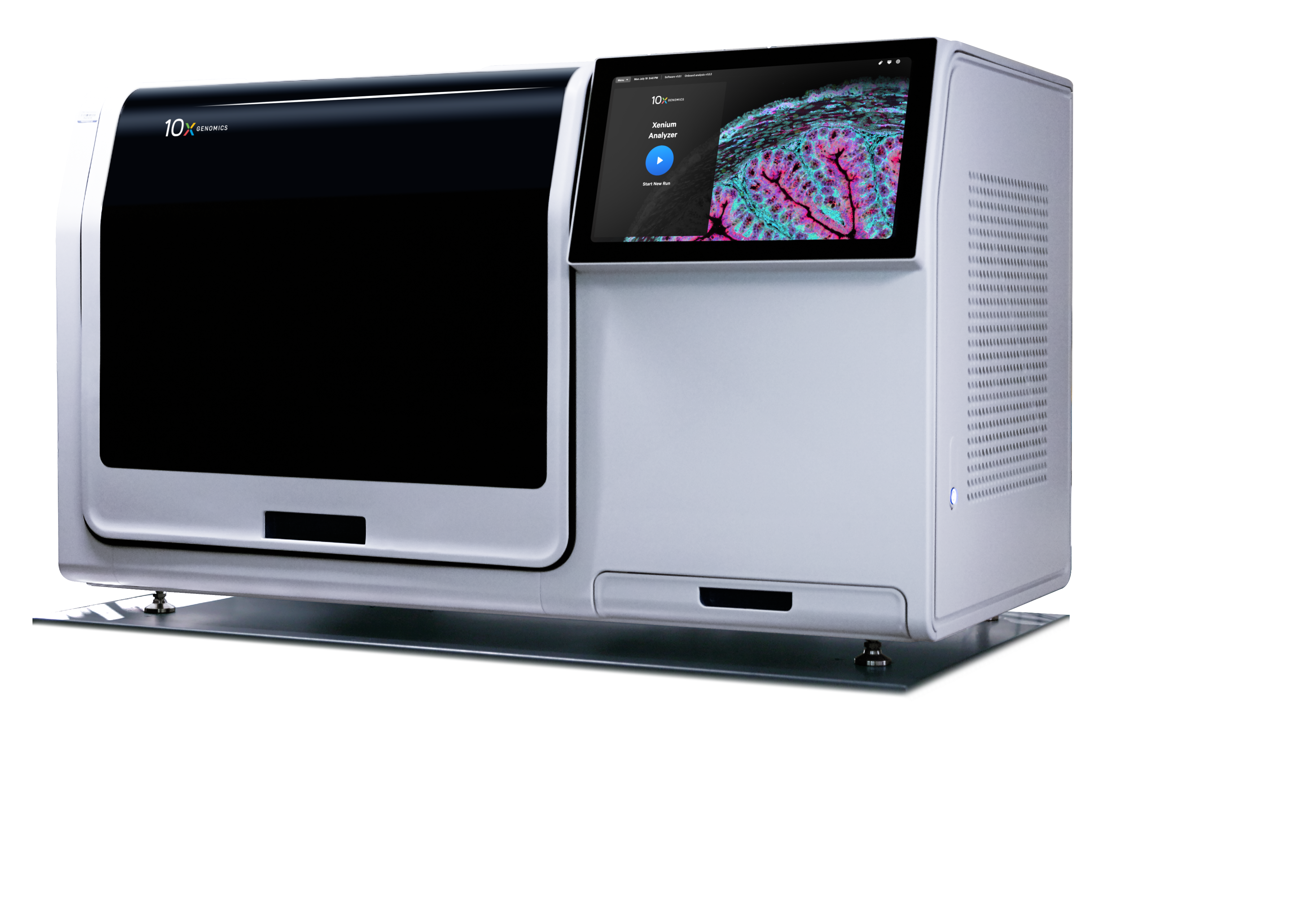Built to deliver exceptional image and data quality
Features state-of-the-art image acquisition and high-resolution optics with a nanometer-level localization precision.
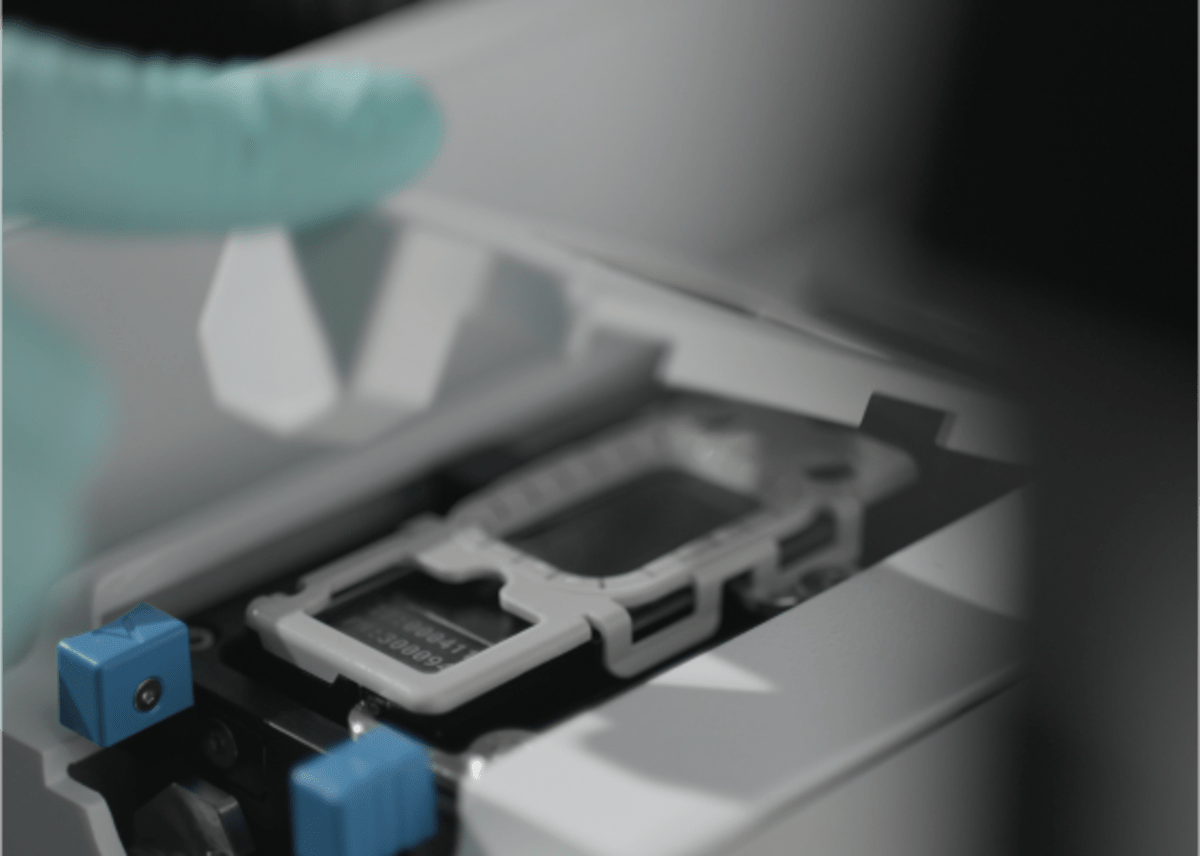
Xenium offers industry-leading speed and throughput
Using multimodal cell segmentation, analyze 472 mm² of tissue per run, targeting up to 480 genes in < 3 days or up to 5,000 genes in < 6 days.
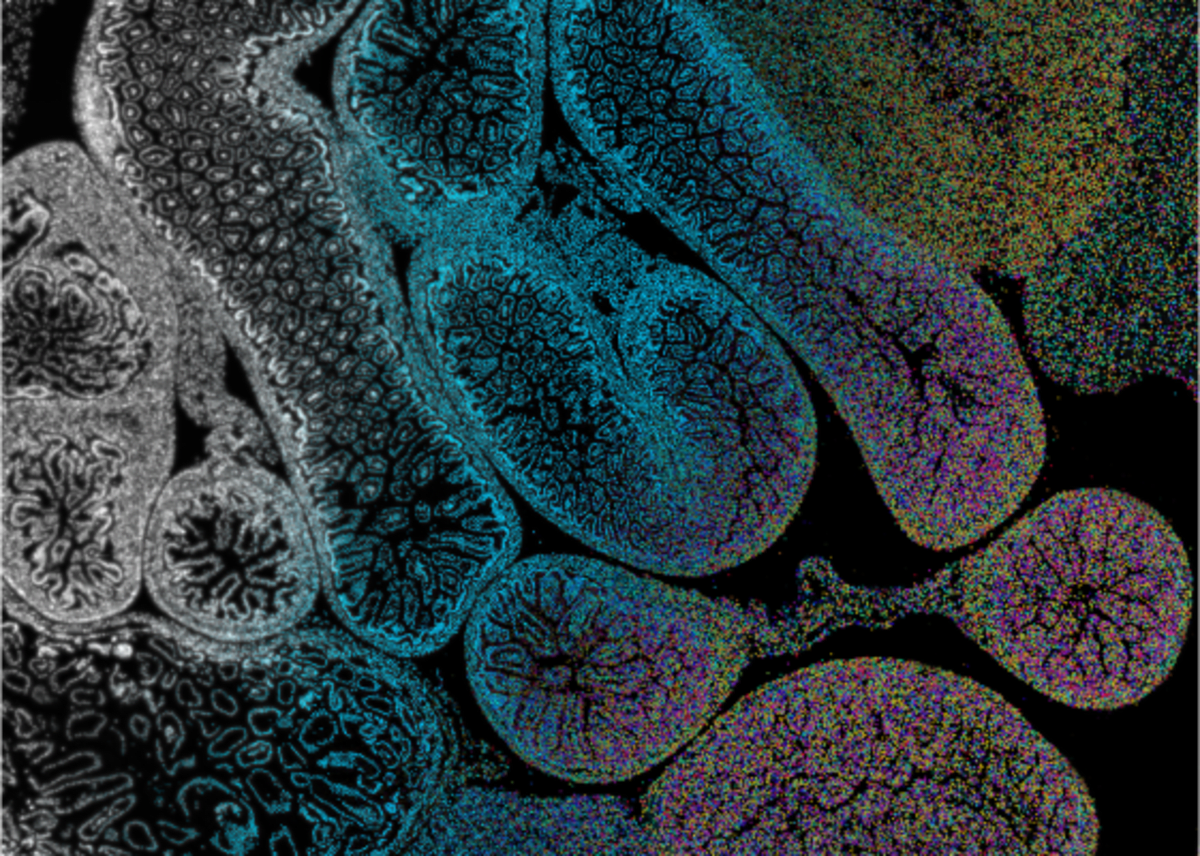
Converts terabytes of 3D imaging data into biologically meaningful insights
One-of-a-kind onboard analysis software performs high-powered computation on-instrument. Internal image sensor data is converted into ready-to-explore formats as soon your run finishes.
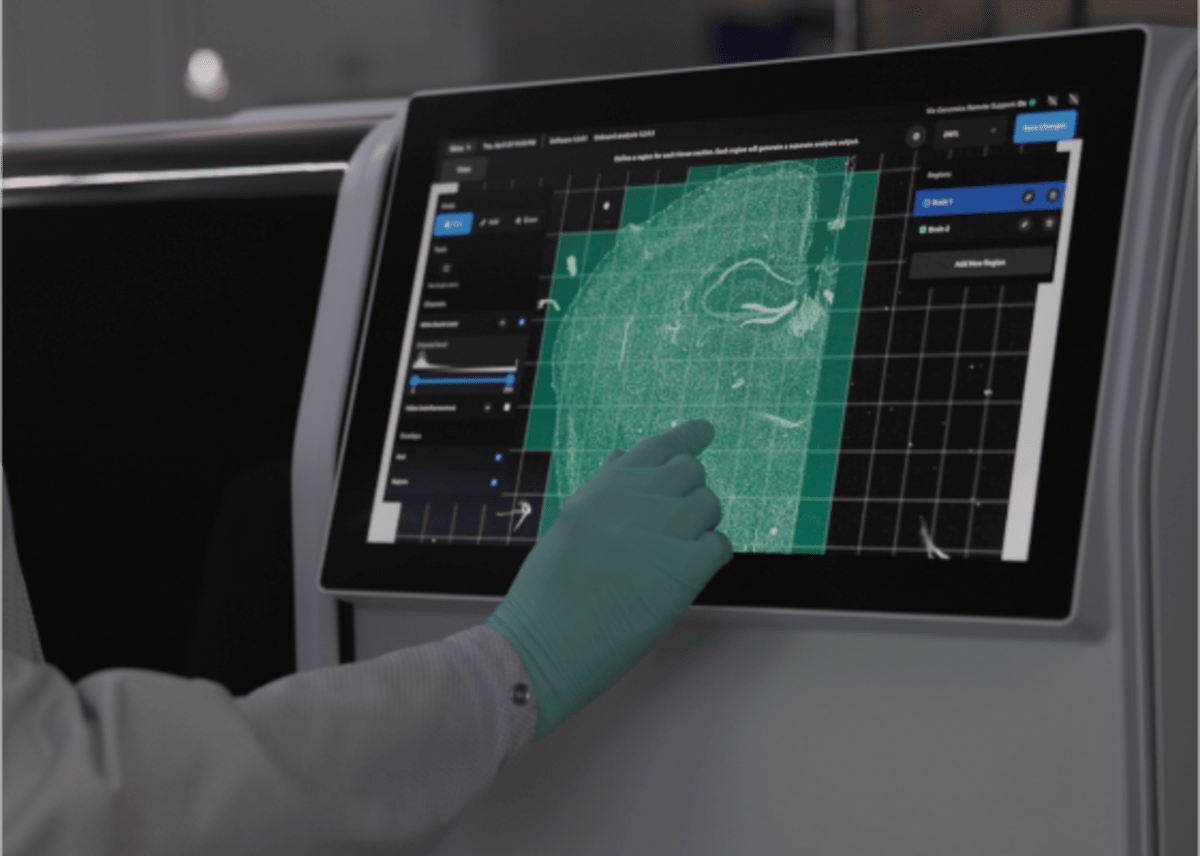
Delivers an unparalleled user experience
Simple run setup and cleanup operations, an intuitive touchscreen, and ergonomic design make instrument operation a breeze.
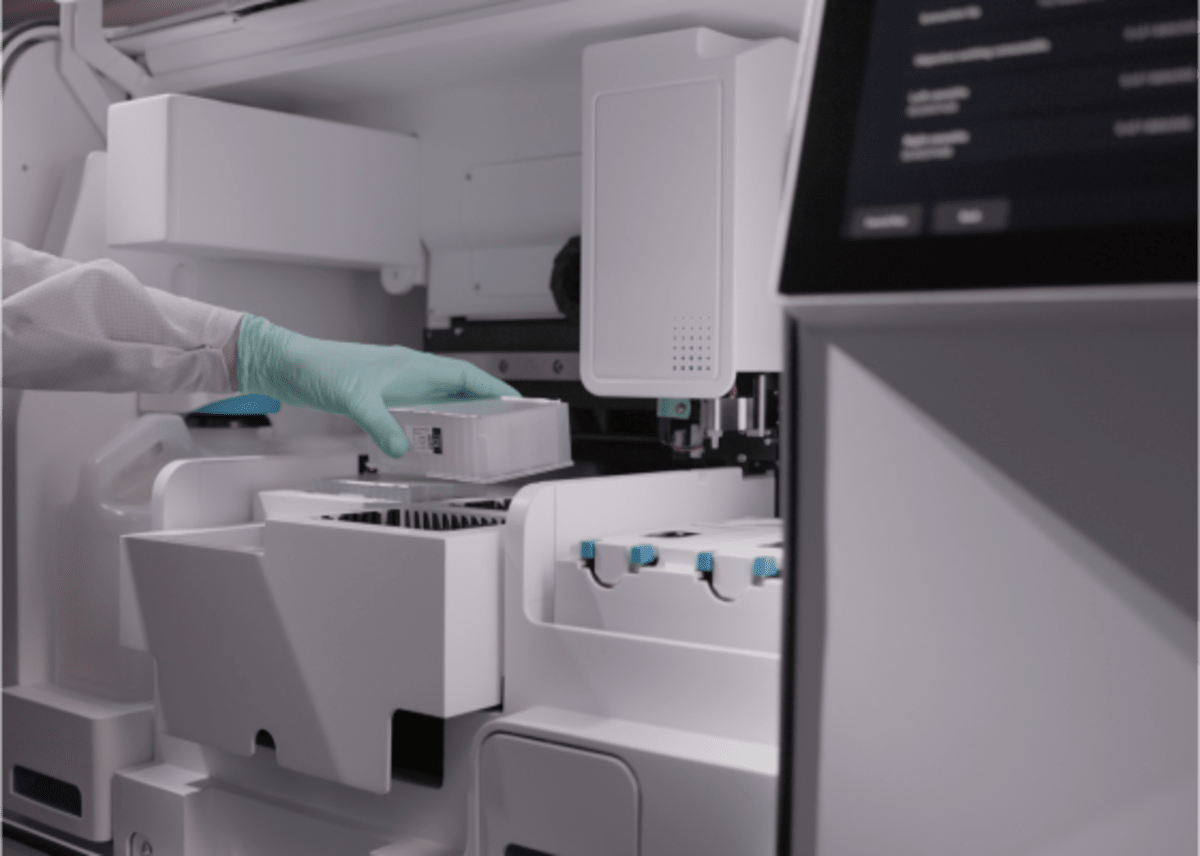
Expands with upcoming innovations
Flexible fluidic architecture allows the Xenium Analyzer to leverage new functionalities, assay enhancements, and more.
The ultimate single cell spatial biology experience
Instrument | Xenium Analyzer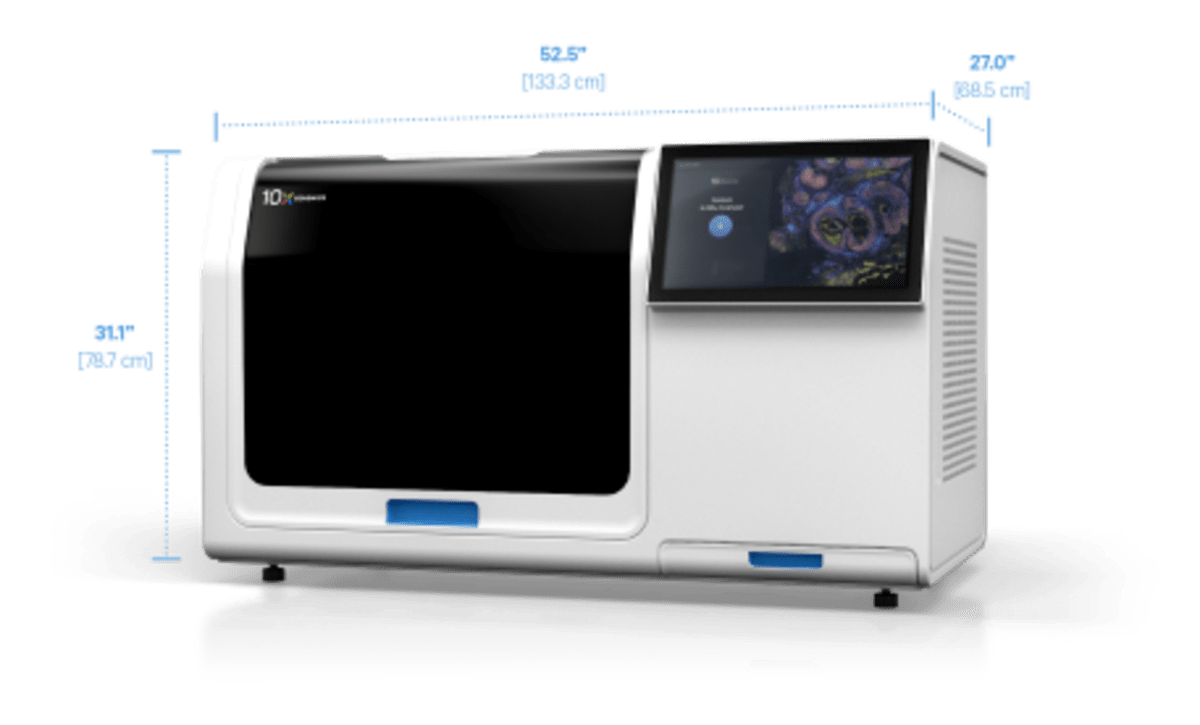 |
|---|---|
Dimensions (W x D x H) | 52.5” x 27” x 31” (59” with door open) 133.3 cm x 68.5 cm x 78.7 cm (149.8 cm with door open) |
Resolution | Transcript XY-localization precision < 30 nm and Z-localization precision < 100 nm Pixel size = ~0.2 µm/pixel |
Number of slides per run | 2 slides |
Throughput (area per time) | 472 mm² of tissue per run when targeting up to 480 genes in < 3 days or up to 5,000 genes in < 6 days* |
Total tissue area analyzable per run | ~ 472 mm² |
Sample prep | 2–3 days sample prep with 4–6 hrs of hands-on time |
Data output file formats | Cell-feature matrices: MEX, HDF5, Zarr Transcripts and segmentation boundaries: CSV, Parquet, Zarr Tissue images: OME-TIFF |
Connectivity | Compatible with 10x Genomics Cloud instrument management |
*When using multimodal cell segmentation.
Explore the science behind Xenium
See what Xenium users are saying
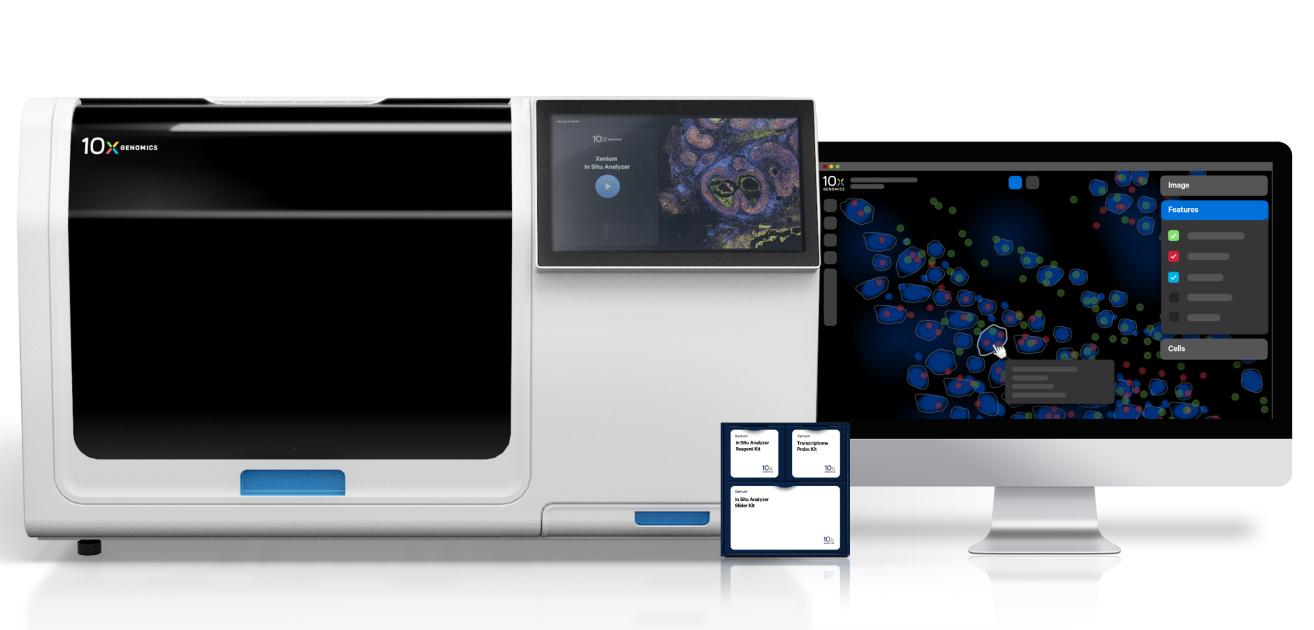
Xenium In Situ Platform
Building on our years of innovation in single cell and spatial technologies, Xenium was designed to transform the way researchers can characterize RNA, protein, and cells in their native tissue environment.
